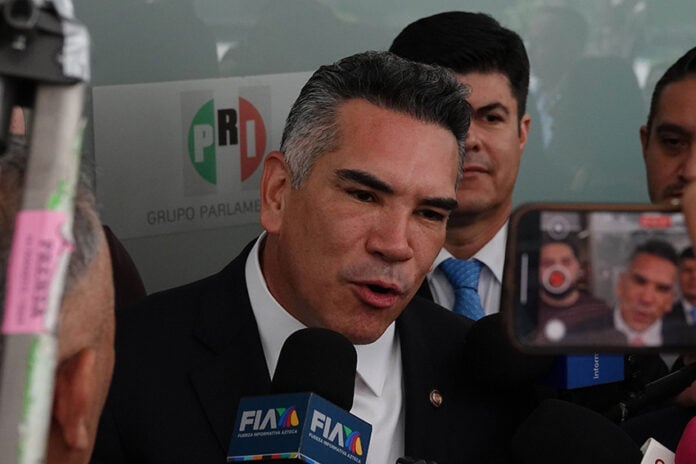The groping of President Claudia Sheinbaum on a downtown Mexico City street plainly illustrated the gender violence women face every day in Mexico, prompting vocal support from female politicians and activists around the world while generating calls for public discussion about the issue.
However, the polarization that dominates Mexican politics has obfuscated the opportunity for national solidarity with regard to a genuine problem plaguing a nation in which an estimated 70% of Mexican women aged 15 and over will experience at least one incident of sexual harassment in their lives.

Whereas Mexican women voiced outrage over the assault suffered by the president, Sheinbaum’s political rivals accused her of using the incident to distract from another issue: political violence.
Sheinbaum, 63, was attacked while greeting supporters near the presidential palace on Tuesday as she was walking to a public event. A drunken man approached her, put his arm around her shoulder, and with the other hand touched her hip and breast, while attempting to kiss her neck.
The following day, Sheinbaum announced that she would press charges against the man and urged state officials to scrutinize laws and procedures to make it easier for women to report such assaults.
A few hours later, Senator Alejandro Moreno suggested the incident may have been staged “to divert attention from the issues that most concern Mexicans,” referencing the recent murder of the mayor of Uruapan, Michoacán, the seventh mayor murdered in that state since 2022.
“The government doesn’t want people talking about what happened in Michoacán, about the murders, the crimes, about how it has been overwhelmed by drug cartels,” Moreno, a member of the opposition Institutional Revolutionary Party (PRI) said. “That’s why it created this big, crude, vile and hypocritical distraction to try to deceive public opinion.”
National Action Party (PAN) Senator Ricardo Anaya asked ironically, “If they can’t take charge of the president’s security, how are they going to secure the country?”
Activists and supporters described these accusations as a perfect example of how women who suffer such assaults are revictimized by authorities.
“It’s always about disparaging and not trying to understand what happened,” María de la Luz Estrada, director of the National Citizen Observatory on Femicide, said.
A special report published by the newspaper El País pointed out that, by attacking Sheinbaum, the suspect told every woman — from executives to teachers, cleaners, lawyers, or gardeners — that it doesn’t matter who they are, what job they have or what position they hold.
“They are vulnerable simply for being women to a violence that, to varying degrees, millions of women suffer daily all over the world,” the El País report said.
President Sheinbaum files criminal complaint after groping incident on the streets of Mexico City
Ingrid Beck, an Argentine journalist who produced the report “Online Gender Violence Against Women with Public Voices” for the United Nations Programme for Gender Equality and the Empowerment of Women, called the attack on Sheinbaum “an opportunity to talk about sexual harassment.”
“[The attack on Sheinbaum] demonstrates … that we are very far from being protected, safe or simply alive. It seems as if that is still the exception and not the rule. It intimidates women in politics and can cause others to not even dare to be involved, or to make younger women afraid,” she said.
This same point — with a twist — was made by Ceci Flores, the leader of a collective of relatives searching for missing loved ones who has criticized the administration for failing to adequately address the issue of the “disappeared.”
“Our president only needed a few meters outside the palace to become a victim,” she wrote on social media. “That’s the Mexico we all walk every day: Iif we’re lucky it’s assault, if we’re not they kill or disappear us.”
With reports from El Universal, The Associated Press and El País
